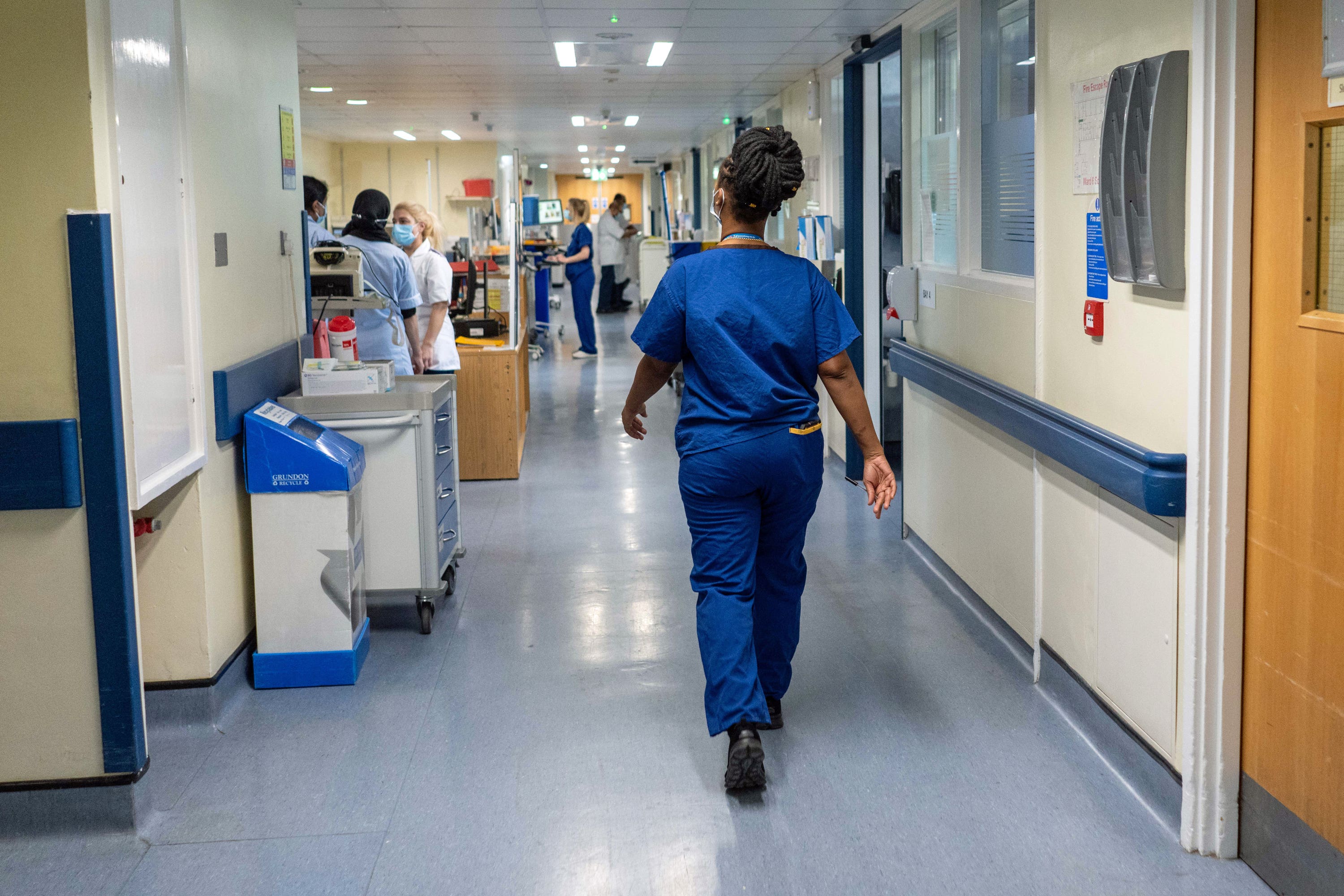RCN warns of declining numbers starting nursing degree courses
Increases needed will be impossible to deliver without a ‘serious and significant’ government intervention – report.

Your support helps us to tell the story
From reproductive rights to climate change to Big Tech, The Independent is on the ground when the story is developing. Whether it's investigating the financials of Elon Musk's pro-Trump PAC or producing our latest documentary, 'The A Word', which shines a light on the American women fighting for reproductive rights, we know how important it is to parse out the facts from the messaging.
At such a critical moment in US history, we need reporters on the ground. Your donation allows us to keep sending journalists to speak to both sides of the story.
The Independent is trusted by Americans across the entire political spectrum. And unlike many other quality news outlets, we choose not to lock Americans out of our reporting and analysis with paywalls. We believe quality journalism should be available to everyone, paid for by those who can afford it.
Your support makes all the difference.The official NHS workforce plan for England will be almost 11,000 new nurses behind target by 2025 if current trends continue, according to a new report.
The Royal College of Nursing (RCN) said declining numbers starting nursing degree courses in England, as well as university course closures, have created an “irretrievable downward spiral” in workforce planning.
Ministers were urged to prioritise a plan to increase student nurse applications for the 2025 intake as part of action to tackle the workforce “crisis”.
The ground is being laid for workforce shortages to deepen, impacting patient care
The NHS Long Term Workforce Plan, published a year ago, aims to increase the nursing workforce from around 350,000 to around 550,000 in 2036/37.
But the number of people starting nursing courses has declined and if the trend continues, the next two years would see the NHS in England almost 11,000 nursing students short of the numbers needed, said the RCN.
It added that the increases needed will be impossible to deliver without a “serious and significant” government intervention.
Nursing students pay university fees of over £9,000 a year, which has caused applicant numbers to drop significantly, following the ending in 2017 of the grant to to support nursing students through university.
Courses are also under threat from the financial crisis gripping universities. A RCN survey of over 500 nurse educators in England found that three in five reported being directly affected by redundancy, a staffing restructure or recruitment freeze.
Patricia Marquis, executive director for RCN England, said: “Making the next generation of nurses pay £9,000 a year to work in our NHS was a grave mistake.
The predicted shortfall in nurses would exacerbate existing pressures on the NHS, including long waiting times, delayed treatments and staff burnout
“Applications have collapsed and now the NHS is falling behind its own recruitment targets just one year into the Long Term Workforce Plan. The ground is being laid for workforce shortages to deepen, impacting patient care.
“The financial crisis engulfing universities means the courses that supply the nurses of the future are under severe risk and staff are being made redundant. This threatens to send student recruitment into an irretrievable downward spiral. Fewer courses and fewer teachers means fewer nurses – it’s that simple.
“The trends are deeply concerning and require swift and decisive action. The next government must fund tuition fees for nursing students, reintroduce universal maintenance support and stabilise the higher education sector.”
NHS Providers chief executive Sir Julian Hartley commented: “Without enough nurses, the delivery of safe, high-quality patient care is compromised.
“The predicted shortfall in nurses would exacerbate existing pressures on the NHS, including long waiting times, delayed treatments and staff burnout.
“The worrying decline in student nurse numbers and potential closure of nursing courses could also lead to a long-term negative impact on the NHS workforce, undermining trusts’ efforts to recover from the pandemic and tackle care backlogs.”